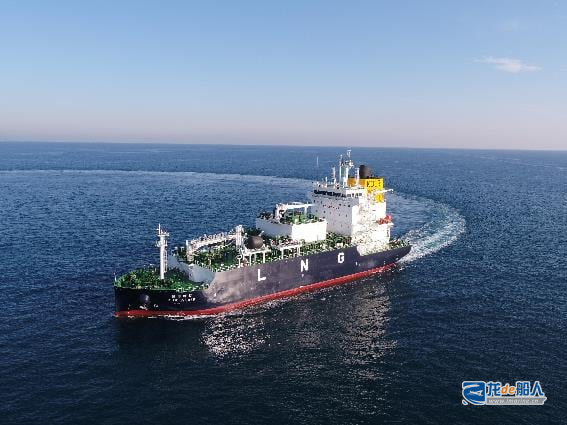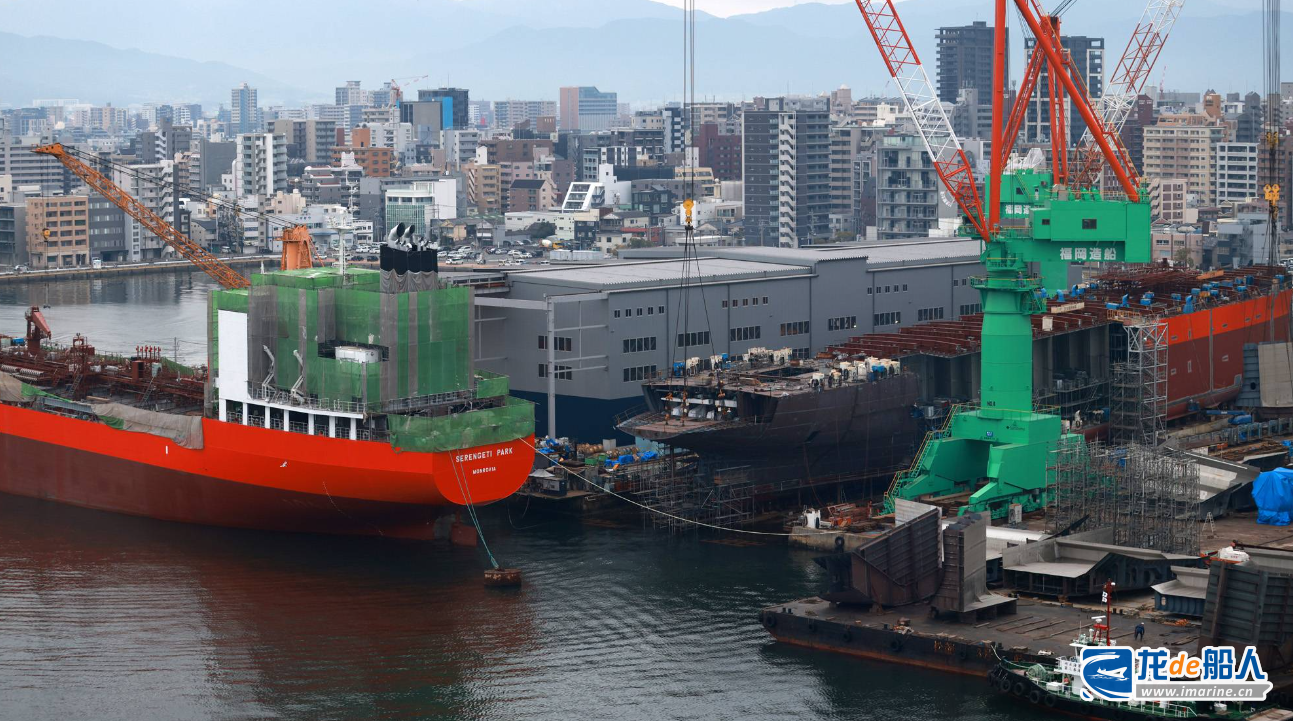South Korean media reported that as the United States intends to impose millions of dollars in high port fees on Chinese ship operators, operators operating Chinese-built ships, and operators who may order Chinese ships, Chinese shipbuilders may face the risk of cancellation of ship orders. Analysts said that the decline in demand for Chinese shipbuilders may benefit South Korean shipbuilding.

According to Korean media sources, US energy giant ExxonMobil has canceled an order for two large LNG bunkering vessels that was originally scheduled to be delivered by a Chinese shipbuilder. It is said that the shipbuilder had reserved slots for the two newbuildings, but the contract was terminated due to ExxonMobil’s failure to place the final order.
It is worth noting that this is the first time that orders undertook by Chinese shipbuilders have been canceled since the Office of the U.S. Trade Representative (USTR) held a public hearing on March 24, local time. The hearing ended on March 26, local time.
The hearing focused on proposed restrictive measures on China’s maritime, logistics and shipbuilding sectors, which would impose high port fees on Chinese ship operators, operators using Chinese-built ships and operators who may order Chinese ships. Whether the restrictive measures are implemented will ultimately be decided by US President Trump.
During the public hearings, some industry members expressed concern that the imposition of port fees on Chinese-built ships and Chinese shipping companies would increase logistics costs and negatively impact energy and agricultural exports. However, there were also voices that supported the imposition of fees as being consistent with the expected growth of the U.S. maritime industry.
The shipbuilding industry expects that demand for Chinese ships will further decline in the future. Although ExxonMobil did not disclose the reason for canceling the shipbuilding contract, analysts believe that the proposed measure of imposing high port fees on related Chinese ships may have affected the investment decision of shipowners.
Shipping companies with large numbers of Chinese-built ships now need to consider diversifying their fleets. Clarkson data shows that about 70% of new ship orders last year were secured by Chinese shipbuilders.
South Korean and Japanese shipbuilders could benefit if demand for Chinese ships decreases. According to the Congressional Research Service (CRS), China accounts for 51% of global ship deliveries by 2023, followed by South Korea (28.3%) and Japan (15.4%).
With the increasing likelihood of levies being imposed on Chinese shipping companies and Chinese-built ships, there is also a trend towards levying insurance premiums on non-Chinese-built ships.
As the possibility of imposing fees on Chinese shipping companies and ships built in China is increasing, it has also become a trend to levy insurance premiums on ships that are not built in China.
A shipbuilding industry source noted, “The order for large LNG bunkering vessels canceled by ExxonMobil can only be built in China and South Korean, which may lead to a flow of orders to South Korea. Currently, South Korean shipbuilders have been accumulating orders for at least three years, making it difficult to provide slots for the order.”
USTR plans to gather more comments by April 2 and plans to develop a port fee policy for China.
The Korea Trade-Investment Promotion Agency (KOTRA) recently stated: “The competitiveness of the US shipbuilding industry is significantly lower than that of China, and South Korea’s shipbuilding exports to the US are expected to start.” In addition, contracts for maintenance, repair and overhaul (MRO) projects for US military ships and the new shipbuilding market are also worth looking forward to.

It is worth mentioning that, although the industry believes that South Korea and Japan’s shipbuilders may benefit from the U.S. policy towards China, but there are also voices in the industry that “South Korea, Japan is difficult to fill the gap in China’s shipbuilding industry”.
Japan’s largest shipping company Nippon Yusen Kaisha (NYK) Chief Executive Officer Takaya Soga has previously said that South Korea and Japan’s shipbuilders are difficult to rapidly expand shipyard capacity to meet U.S. demand for alternatives. Japanese shipyards are currently operating at full capacity, there is no excess capacity before 2028; at the same time, South Korean shipbuilders are facing financial pressures.
Not only that, the production capacity of Japanese shipyards has shrunk overall, and Korean shipyards are also facing pressures such as labor shortages and rising costs. These have revealed the limitations of the development of the two countries’ shipyards, which means that their shipyards simply cannot fill the gaps in China’s shipbuilding industry in a short period of time.
Clarkson has also previously said, “In terms of current capacity development, global new shipbuilding investment in the short to medium term is still extremely dependent on Chinese shipyards.”


